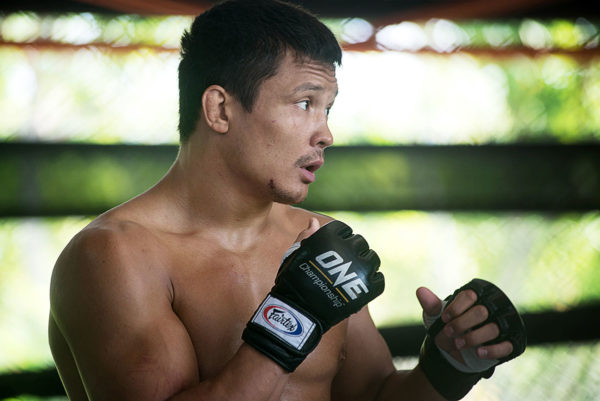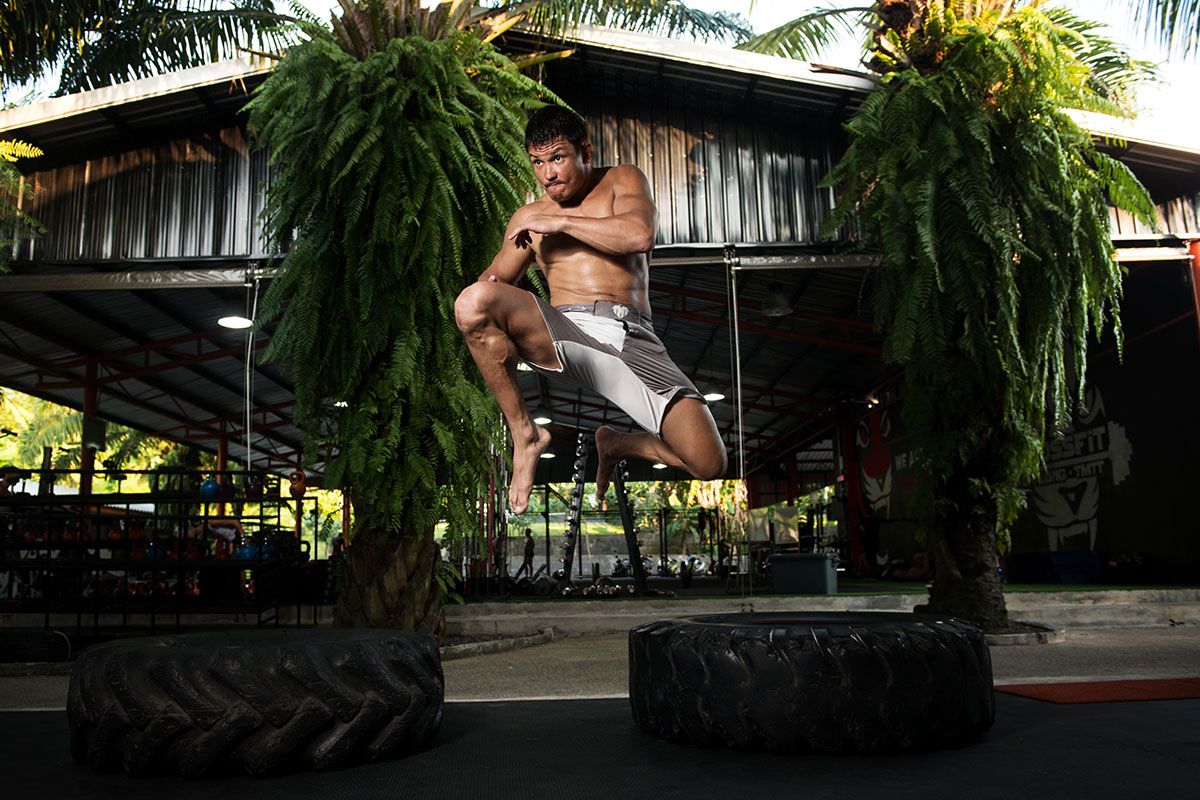
Timofey Nastyukhin (11-3) may come across as a merciless knockout artist inside the ONE Championship cage. But outside of the cage walls, he is a fairly soft-spoken individual who chooses his words carefully when speaking about his rivals.
In his nearly eight-year professional career, he has never talked trash or hyped himself up at the expense of an opponent. From the sounds of it, the Russian warrior does not plan to start anytime soon.
“The cage always shows who is the better man, so what is the point of being a bully before the match,” the 28-year-old reasons. “I do not want attention for the sake of attention. I was taught from young to not seek cheap popularity.”
That was just one of many lessons he learned from his parents.

Nastyukhin was originally born and raised in Kazakhstan. During the 1990s, however, the political situation in his birth nation changed with the fall of the USSR. Making matters even more difficult, his father was made to feel like an outsider.
“My mother is Kazakh, and my father is Russian,” the lightweight begins.
“When the USSR collapsed and Kazakhstan went its own way, Russians often were made feel like they outstayed their welcome.”
With that in mind, the family patriarch was forced to search for a new job to support his family. Nastyukhin’s father left Kazakhstan for Novokuznetsk, a southwestern city in Siberia. He quickly found a job and an inexpensive apartment to rent, and then invited his wife, his daughter, and Timofey to join him.

“I was about 5 years old when we moved,” Nastyukhin recalls.
“Those were tough times. My dad had to borrow money often. There was no stability, and the prices were rising all the time.”
Nastyukhin may have been living in a different country, and the family may have been financially stressed, but his parents provided a warm home for their children. That allowed the future lightweight contender to prosper.
“I made friends quickly, and I was an outgoing, happy boy,” he explains.
“We did not have money, but my family was very loving. It was a healthy environment. I looked at the world through rose-tinted glasses, believing that no one can harm us, and only good things lie ahead in life.”

The family had to remain tight, especially when Russia plunged into the whirlwind of free market economy. Even through this tumultuous period, the Nastyukhin family and their fellow compatriots lived by the principles of honor and mutual support.
“Those times were tough for most people. Crime was high, and jobs were not easy to come by,” he continues.
“It was normal for people to work two to three shifts, and borrow money from each other until they could get their next paycheck. Like fingers of a hand, we clutched into a fist to become stronger.
“I am from an ordinary family, really. Many people think that after perestroika, everyone in Russia went crazy, but it is not true. Family values and education has always been important in my country. My sister and I were taught the importance of simple truths: to love your family, to always put them first, and to help each other.”

Like many Russians of that generation, Nastyukhin’s father saw sport as a good way to keep his boy out of trouble. It helped that young Timofey was absolutely fascinated with martial arts, having seen movies from the likes of Bruce Lee, Jackie Chan, and Jean-Claude Van Damme.
The family patriarch soon enrolled his son in a local pankration school, and made it a point to keep him inside the dojo even when money was scarce. In the 1990s, the devalued rouble was hardly worth the paper it was printed on, yet his parents always found the cash to pay for their children’s training.
“I can see now how they had to limit their own spending to make sure I could attend the gym,” Nastyukhin admits. “During my first competitions, I was such a loser. But my parents never scolded me. They would always say, ‘Train hard and everything will come together.’”
While at the pankration school, he met someone who has remained in his life as a trainer, mentor, and practically a family member.
“I have been going to the same coach, Ivan Ryabtsev, for 20 years now,” he says. “He really is like a second father to me.”
Ryabtsev was the man responsible for guiding the Russian to a pair of FILA Pankration championships, and also by his side to show support in his cage endeavors.

Although Nastyukhin suffered a broken tibia in November 2016, and spent nine months rehabbing the injury, his biggest heartbreak happened last year. His father, the very same man who encouraged his son’s martial arts pursuits, passed away.
Understandably, it was difficult for the lightweight to deal with. Nonetheless, he is happy the patriarch was able to witness his flourishing career, and his transformation from an outgoing, happy boy into a responsible adult with strong family values.
“I am glad he had a chance to see me winning and succeeding, and doing what he taught me — putting my family first, and being a strong and reliable man.”
All that is more important than ever for Nastyukhin, as the warrior’s job now is to take care of his mom, his wife, and his new-born daughter. Though he is motivated to become the ONE Lightweight World Champion, it is his family that is fueling him in his efforts to defeat Amir Khan at ONE: QUEST FOR GOLDon Friday, 23 February in Yangon, Myanmar.

“What makes my job easier is that they are really proud of me. It keeps me motivated. Seeing me with my family gives my mother a sense of accomplishment. I myself need their love, support, and approval to keep competing and achieving,” Nastyukhin explains.
“There are two things I want to do most right now: win this match, and get back home to see my daughter, who was born two days after I had left for my training camp in Thailand. It will be my first present to her.”





More News
Quiñonero fights Verdadero in Resbak 2
Resbak 2 at Malungon, Sarangani Province on July 12
Garde stops Baliente in 1st round in “Resbak”